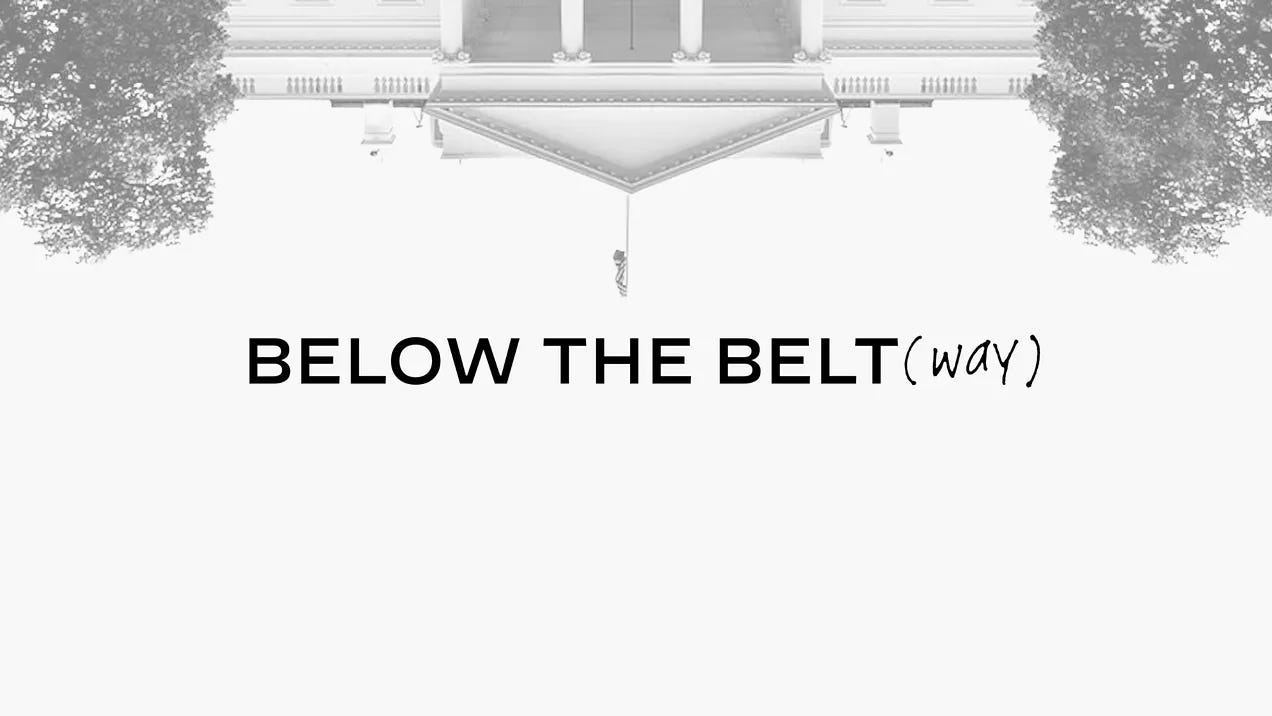Today’s Supreme Court ruling wasn’t actually about birthright citizenship
ALSO INSIDE: These 22 attorneys general have been Trump-proofing their states
Cam here 👋 bringing you your daily dose of what people are doing – good, bad, and otherwise – in the world of politics. We’re bringing you the stories you won’t see anywhere else. And remember, you can also keep up with me over on TikTok and Bluesky.
And if you’re looking for a little more from COURIER, Akilah Hughes’ new series, “How is This Better?” explores why politics feels more like a reality show than real life, and our docuseries “REPRESENT” follows candidate Deja Foxx as she gets real about the highs and lows of running for Congress.
Since day one of Trump’s political career, people have desperately attempted to normalize his absurd abuses of power and blatant corruption. Now, 10 years later, much of corporate media remains a victim of its own attempt to return to a sense of normalcy.
It’s time to stop sane-washing the insanity.
What Happened
The US Supreme Court ruled Friday morning that federal judges could only pause the enforcement of laws challenged in court for those who filed the lawsuit. The decision to end national injunctions by district courts was tied to a lawsuit challenging President Donald Trump’s executive order ending birthright citizenship for certain newborns. With the federal injunction removed, birthright citizenship will only be protected in the 22 states that filed the suit.
That’s how reporting on the ruling has been framed, for the most part: Trump’s executive order can be enforced while the case against it works its way through the courts. But the ruling wasn’t really about birthright citizenship, and its full implications — which the White House outlined in its press release — are being largely overlooked by traditional outlets.
While Trump’s Truth Social post only mentioned birthright citizenship, and he skirted the question about nationwide injunctions during his press conference, his administration published its full intentions on the White House website:
“Now, the Trump Administration can promptly proceed with critical action to save the country — like ending birthright citizenship, ceasing sanctuary city funding, suspending refugee resettlement, freezing unnecessary funding, stopping taxpayers from funding transgender surgeries, and much more.”
Dozens of these nationwide injunctions have been ordered since Trump took office, and their removal opens the door for LGBTQ youth to be denied medical care, DOGE to access taxpayer’s private data held by the US Treasury and Social Security Administration, restrictions on voting accessibility, federal funds to be taken away from public schools, universities, housing programs, climate action initiatives, and limits on birthright citizenship to go into effect in any state that didn’t sue to stop it.
Attempts to Sanewash
Trump says ruling is 'monumental' as he thanks Supreme Court
Supreme Court limits judges' power to halt Trump's birthright citizenship order
Supreme Court allows Trump to partially enforce birthright citizenship order
Far-Right Spin
Supreme Court Ends Abuse of Injunctions: No More 'Judicial Supremacy'
Supreme Court Slaps Down Activist Judges, Lets Trump's Birthright Citizenship EO Go Into Effect
BREAKING: SCOTUS Rules on Rogue Judges, Impacting Birthright Citizenship
These 22 AGs have been Trump-proofing their states
The limit on nationwide injunctions creates a haphazard patchwork of laws that can completely upend someone’s life, depending on which state they live in. Newborns will be granted citizenship in some states, while taxpayers’ personal data will be given freely to DOGE in others.
The difference comes down to each state’s attorney general and their willingness to take on the Trump administration in court. The distinction makes the difference between red and blue states starker than ever, but those lines can get a little blurry in battleground states.
I wrote about this back in November, when I profiled Arizona Attorney General Kris Mayes’ preemptive efforts to limit Trump’s influence on her state. She even stopped inviting the Biden administration to join in on lawsuits so their success wouldn’t be dependent on who was in the White House.
“One of the reasons that I have started to—shall we say, diversify our antitrust portfolio by filing some of these cases in state court is because we didn’t know for sure who was going to win the election,” Mayes said. “The FTC will do what the FTC is going to do, but we will continue to bring antitrust cases—with or without them.”
Mayes said her office and other similarly-minded AGs researched Project 2025 extensively after it was first leaked, so they could anticipate what Trump’s potential actions would be and how they could counter them quickly and efficiently.
The end result is that states like Arizona, Nevada, and North Carolina have been effectively Trump-proofed by their Democratic attorneys general, while their Republican counterparts in Pennsylvania, Virginia, and Georgia have sat out of any multi-state lawsuits against the Trump administration.
In total, 22 states — give or take a few, depending on the lawsuit — and Washington, DC, will retain their protection from any potentially illegal actions by the Trump administration as they work their way through the courts:
Arizona
California
Colorado
Connecticut
Delaware
Hawaii
Illinois
Maine
Maryland
Massachusetts
Michigan
Minnesota
Nevada
New Hampshire
New Jersey
New Mexico
New York
North Carolina
Oregon
Rhode Island
Vermont
Wisconsin
Mississippi US Sen. Roger Wicker
Since taking office in 2007, Sen. Wicker has:
Sponsored 719 bills, 14 of which have been signed into law
Believes the US should execute a preemptive nuclear strike against Russia
Opposes humanitarian aid of any kind to Palestine
Opposed President Obama nominating a Supreme Court Justice during an election year: “American people should have the opportunity to make their voices heard before filling a lifetime appointment to the nation’s highest court."
Supported President Trump nominating a Supreme Court Justice during an election year: “Republicans promised to confirm well-qualified, conservative judges and justices to the federal courts. We should continue to fulfill this promise.”
Fun Facts
Sen. Wicker is a loyal representative for his campaign donors — and the return on investment is well worth it. One of his first successes in office was to guarantee $6 million in spending to Aurora Flight Science, a defense contractor whose president donated $8,000 to his first Senate run in 2006. He’s continued to fight for the private company’s bottom line, securing Aurora Flight Sciences another $48 million contract in 2018.
Opposition to addressing climate change appears to have financial motivations as well. Wicker was quiet on the subject until the oil and gas industry began donating to his campaign in 2012. Two years later, he was pushing the construction of the Keystone XL pipeline. In 2015, Wicker was the only senator to vote against formal recognition of climate change, and in 2017, he was one of the primary voices that convinced Trump to leave the Paris Climate Agreement.
For this, Wicker was rewarded: he received $200,000 from the oil and gas industry before the Paris pullout and another $1 million in the years since.
Virginia’s about to go through it
Despite Virginia’s diverse political makeup, Republican Attorney General Jason Miyares has aligned himself firmly with the Trump administration, opting to stay out of lawsuits that accuse the president of executive overreach. The end result could be a loss of millions in federal grant money, denial of citizenship for newborns, prohibitions on medical care for LGBTQ youth, and the consequences of any executive order that has been blocked by nationwide injunctions.
Michael O’Connor, political correspondent for COURIER’s Dogwood newsroom in Virginia, has been following Miyares’ Democratic challenger on the campaign trail. Jay Jones, a former state lawmaker who won his party’s nomination earlier this month, sees Mayores’ doormat approach to federal overreach as an issue that could tip the election in his favor.
“Jones called his opponent, Attorney General Jason Miyares, a pro-bono lawyer for Trump,” O’Connor said. “And criticized him for not joining these lawsuits the other attorneys general are joining in on to push back on some of the Trump administration policies.”
O’Connor put together some great video recaps of his time covering Jones and gubernatorial candidate Abigail Spanberger’s bus tour, and Bonnie Fuller wrote an excellent profile on Spanberger and the governor’s race that provides some invaluable insights into what’s considered to be a bellwether election for the 2026 midterms.
Advertise in this newsletter
Do you or your company want to support COURIER’s mission and showcase your products or services to an aligned audience of 190,000+ subscribers at the same time? Contact advertising@couriernewsroom.com for more information.








